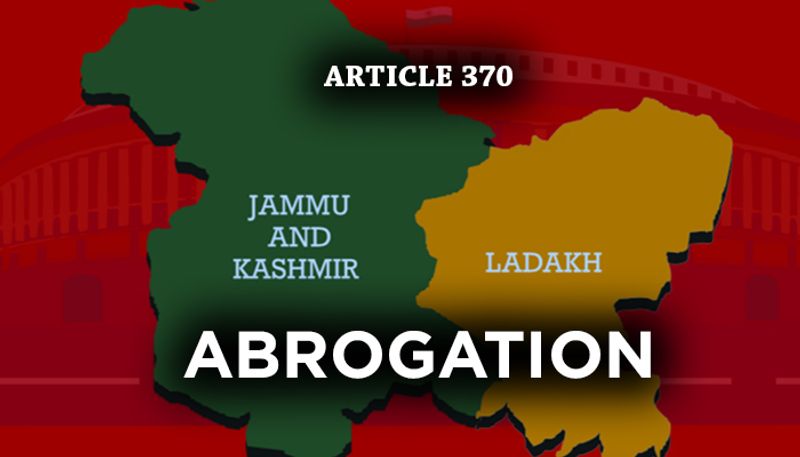Jammu & Kashmir are witnessing a remarkable progress after the abrogation of controversial Article 370 and 35A
New Delhi: ‘‘Patience always pays.’’ And this is what has turned out to be true for the union territories of Ladakh and Jammu & Kashmir which are witnessing a remarkable progress after the abrogation of controversial Article 370 and 35A exactly one year ago on 5th of August, 2019. The Central government led by Prime Minister Narendra Modi has made every concerted effort to bring the people of Kashmir into the mainstream by promoting socio-economic development that was denied to them for over seven long decades. Whatever the government has done so far are examples of only the beginning of a slew of developmental initiatives that it is undertaking to bring back J&K into nation’s mainstream. The positive changes during the past year in the Valley are evident for all to see.
A key objective for introducing the new law last year was to integrate the economy of the erstwhile State of Jammu & Kashmir with the rest of the country. Indeed, after its reorganisation, over 150 agreements have been signed for investing close to Rs 14,000 crore (US$ 2 billion approx.) in Jammu & Kashmir to boost manufacturing and employment generation. The landmark law was passed repealing the temporary but discriminatory provisions in the Constitution of India, thereby making Kashmir a truly integral and inalienable part of India.
Over the past year, various government schemes were successfully implemented in Jammu & Kashmir. The immediate benefits included electrification of 300,000 households, providing access to running water to about 300,000 homes, completion of the initial phase for flood mitigation of the River Jhelum, integration of transgender persons into the social security scheme, and extension of health-care coverage to almost a million school children.
The most apparent change is that all Central laws, which were previously inapplicable, have now been extended to the Jammu & Kashmir. These include progressive, affirmative legislation relating to the right to education, empowerment of women and other under-privileged sections of society, as well as laws ensuring better governance.
Immediately after the new Union Territory was formed, local level elections (elections to block development councils) were held for the first time in October 2019, with a voter turnout of close to a hundred percent. The women of Kashmir, for the first time since India’s independence, could avail of reservation to participate in mainstream politics. With this, the people of Kashmir were able to fully exercise their democratic rights in electing their local representatives.
In an unprecedented development, 50 new educational institutions, catering for 25,000 candidates, were established. This is in line with the Government’s key vision of providing skills to the youth for better access to employment opportunities. Furthermore, with the introduction of reservation in government jobs, people from under-privileged sections could finally overcome the socio-economic injustices of the past and be represented in the public sphere.
In order to ease the economic impact of the lock-down due to COVID-19, the government sanctioned a relief package of Rs 350 crore (over US$ 45 million) to help those adversely affected primarily in the tourism, handicrafts, and construction sectors. The government facilitated the return of over 250,000 residents of Jammu & Kashmir, who were stranded across the country and overseas as well.
Several central ministers visited the UT to interact directly with the people and launch over 200 developmental projects, including new roads, electrical infrastructure, sports structures, and educational buildings. India’s first ever winter games in the scenic hill-station of Gulmarg in north Kashmir was organised. About 1000 athletes from across the country participated in the event, competing in winter sports such as snowboarding and skiing.
Kashmiri products have been given a significant boost with the introduction of a special market intervention scheme for Kashmiri apples and acquiring of the Geographical Indication tag for Kashmiri saffron. These developments will not only provide direct commercial benefits to the people involved in the production and marketing of such products but also give greater recognition for these unique products of Kashmir.
Last Updated Aug 6, 2020, 3:17 PM IST











![Salman Khan sets stage on fire for Anant Ambani, Radhika Merchant pre-wedding festivities [WATCH] ATG](https://static-ai.asianetnews.com/images/01hr1hh8y86gvb4kbqgnyhc0w0/whatsapp-image-2024-03-03-at-12-24-37-pm_100x60xt.jpg)
![Pregnant Deepika Padukone dances with Ranveer Singh at Anant Ambani, Radhika Merchant pre-wedding bash [WATCH] ATG](https://static-ai.asianetnews.com/images/01hr1ffyd3nzqzgm6ba0k87vr8/whatsapp-image-2024-03-03-at-11-45-35-am_100x60xt.jpg)



